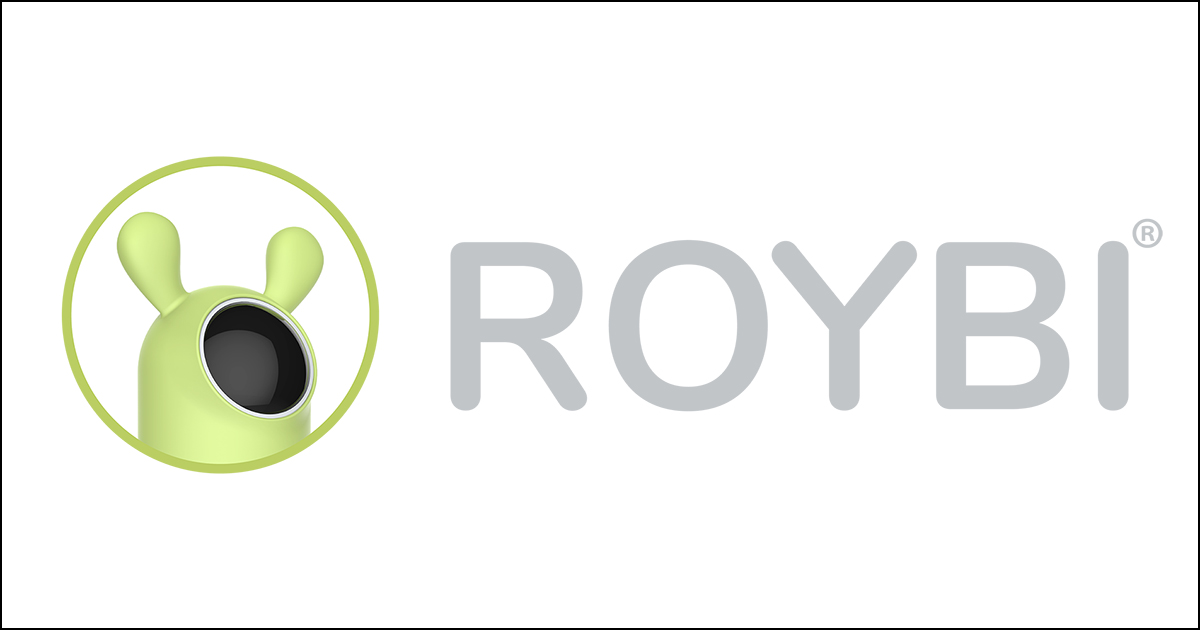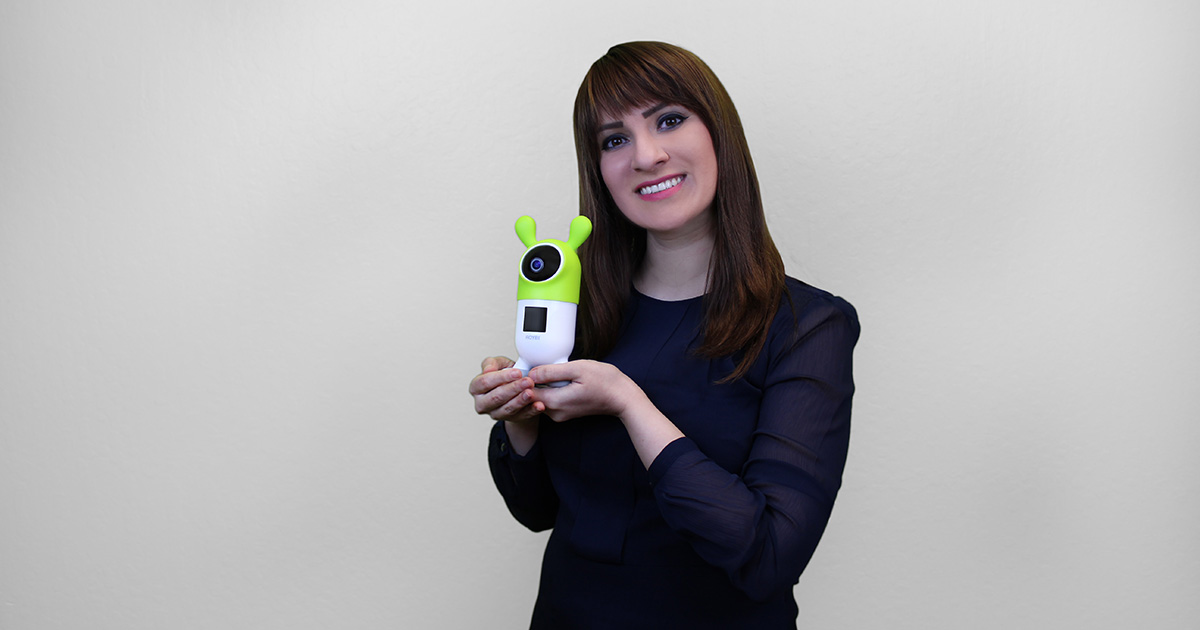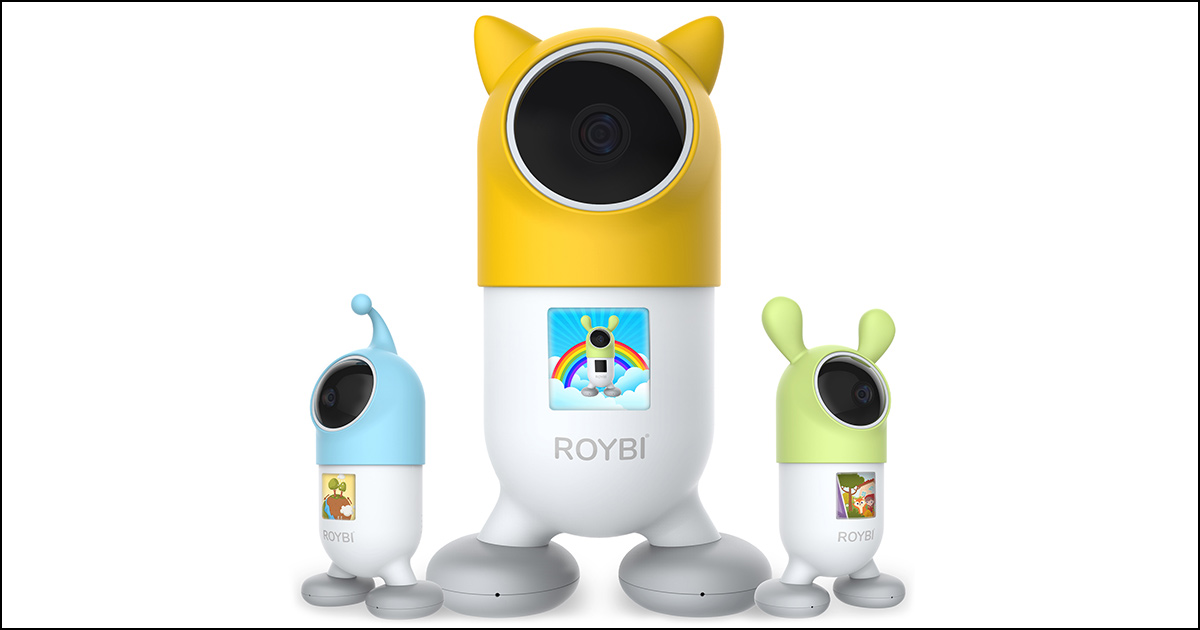ROYBI Profile

Last Updated: By TRUiC Team
ROYBI is an edtech robot that uses artificial intelligence (AI) to teach children everything from language to basic STEM.
Interview With Elnaz Sarraf
Describe your product or service:
“Named by TIME Magazine as one of the Best Inventions in Education, ROYBI Robot is an AI-powered educational robot for children 3+ in language learning and basic STEM. It comes with over 500 lessons, 70 categories and topics as well as over 70,000 vocabularies. Topics range from math, science, space, tech, habitats, geography, and many more.
ROYBI Robot creates smart reports for parents and educators to track learning progress, pronunciation scores, and much more. Parents can play, schedule, and check their favorite lessons on companion iOS and Android apps. Best educational toy for homeschooling and remote learning to make learning fun through play and innovative engagement.”
Describe your company values and mission:
“Our education system needs a fundamental change, and that change starts with early childhood education. Over 250 million children globally are at risk of not reaching their developmental potential because the education system is one-size-fits-all. We designed, developed, and distributed an AI-powered Edutainment System to help children ages two through eight learn in a fun and interactive way. ROYBI helps children with language learning, communication skills, and creative thinking.
Our mission is to provide a personalized learning experience to highlight every child’s ability and interest rather than one-size-fits-all. We provide an infinite learning opportunity to set children apart for future success and promote quality education beyond border limitations.”
How are you funded? I.e. type of funding, number of funding rounds, total funding amount.
“We have raised $4.2 million in seed funding in 2019.”
How big is your team? Tell us a little about them (I.e. co-founders, freelancers, etc.)
“ROYBI currently employs six full-time employees and nine part-time employees between the US, China, and India regions.
Elnaz Sarraf: Founder and CEO. Growing up as a woman in Iran, Elnaz witnessed limited opportunities, leading her on her journey in the U.S. to become an entrepreneur and create a technology that would empower children by providing universal access to personalized learning and an education that prepares them for a better future. Elnaz is also a board member at the Consumer Technology Association, Small Business Council, and a member of Forbes Technology Council. Before starting ROYBI, Elnaz co-founded and led a consumer electronics company, iBaby, serving as the company's president. Elnaz led the company to generate about $10 million in annual revenue with over 50,000 units sold at more than 8,000 storefronts globally [including] Apple, Walmart, Target, MediMarkt, Extra, etc. As an immigrant, Elnaz has made worthy accomplishments in a short duration of living in the US. Honors include being selected as [the] Nasdaq Entrepreneurial Center Milestone Maker, named the Woman of Influence through Silicon Valley Business Journal and Entrepreneur of The Year in Silicon Valley.
Ron Cheng: Co-founder and CTO. Ron is currently the co-founder and CTO of ROYBI, a Silicon Valley company with headquarters in Mountain View, California, and Shenzhen, China. He has over 15 years of experience working as an independent consultant to major corporations, including international NPI, manufacturing, engineering, planning, QA, and general management. He is consistently exceeding external and internal customer expectations with a proven track record in customer-driven, activity-based, and result-oriented business environments. Ron has worked as interim director and consultant roles for major Fortune 500 corporations like JDSU, MFlex, IAC, Foxconn, and more.”
How did you come up with and validate your startup idea? Tell us the story!
“From the very beginning, we knew that we wanted to create an AI-powered robot that teaches, but our subject matter was quite broad. With some research and discussions with educators and professionals, we finally decided to narrow down our focus on language learning and communications. Because our team all learned English as their second language, we felt strongly towards early education and exposure to different languages and cultures. Communication skills are critical to any professional and personal success, so we wanted to teach a language alongside good listening and speaking skills.”
How did you come up with your startup's name? Did you have other names you considered?
“It took us several months, over 1,000 names, and user testing to come up with the name ROYBI. We wanted to have a short and techy name that is easy to remember and pronounce. The name ROYBI is a combination of specific adjectives that define the values of our company. We are on the path to creating a platform that is Robust, Original, Youthful, Bright, and Intelligent. This is a place where any child can learn based on what interests them, and we help to prepare them for a brighter future. ROYBI encourages children to become anyone their heart desires, be original and be themselves, and learn based on their abilities and interests rather than one-size-fits-all.”
Did you always want to start your own business? What made you want to become an entrepreneur?
“From early childhood, I was introduced to computers and technology. When I was only five years old, I started working on computer programs. When I became a teenager, my most exciting adventure was to program websites and even assemble computers. I remember when my dad bought me a very early computer, there were less than 10 computers in the country. I was so lucky to have access to technology at such a young age.
My parents had a significant role in my interest in entrepreneurship. My father was a small business owner in Iran. Even though everyone thought he [was] running the business alone, it was my mom who took care of all the financial and operational aspects of our business at home. Because at that time, it was not acceptable for women to be involved directly in business negotiations or operations—although I hear that the culture has changed drastically, and more women are participating in running businesses in Iran. My dad took me along to many of his meetings; observing the art of negotiating and conducting business deals fascinated me with entrepreneurship’s business and social aspects. These experiences inspired me to pursue my own business.
Feeling inspired? Learn how to launch your company with our guide on how to start a startup.
Did you encounter any roadblocks when launching your startup? If so, what were they and what did you do to solve them?
Raising the first round of funding to build our hardware that showed our vision to the investors' community was quite challenging. We realized that no matter how well we described our idea, getting support will not be possible without a physical prototype, so we decided to build a prototype. My co-founder and I started knocking on factory doors one after another to convince them to make only a few models for us that [could] help us visualize our idea. Once we had a factory onboard and a product in hand, we managed to secure funding.
After securing funding, we had to work very hard to structure our artificial intelligence algorithm. That was the most difficult part of our product development. ROYBI Robot has several AI components such as voice recognition, face detection, and emotion recognition. All these should work in combination to enhance the child's learning experience.
Another challenge was when we were building our hardware. We manufactured our product six months ahead of schedule but that meant that we had work day and day. Some days, my team and I were forced to sleep in the factory because we had to wake up very early to check the progress. Once we started shipping our first batch, we realized that we encountered a significant WiFi problem that had to be addressed. This WiFi issue only happened in some cases and not all. However, customer satisfaction is our top priority. Therefore, we had to stop the shipments and resolve the issue as soon as possible. This meant that we had to unpack thousands of units, update the firmware, and then repack the products. It was a very challenging time but we successfully fixed the problem and again gained our customers’ trust. This delayed our sales for a couple of months, but it was a great experience for our team to learn more.”
Who is your target market? How did you establish the right market for your startup?
“Children ages three through seven are our primary users. We have thousands of users in over 30 countries and growing. Parents tell us that they buy ROYBI Robot to help them with homeschooling, teaching English to their children, teaching them basic STEM lessons, self-guided learning, and learning how to interact with technology to become more interested in computing and other related sciences. AI will be an essential part of our life in the future, so parents tell us they like to expose their children to it from an early age to help them become more educated in its abilities and curious about its possibilities.”
What's your marketing strategy?
“Facebook is by far the most effective online advertising channel. For our business, TV appearances have generated the highest sales, but as you know, TV advertisements can be very costly unless it is a free press. So aside from TV advertising, Facebook is the best channel. We tried many ways, but Facebook seems to have the best algorithm to find the right buyers on a worldwide basis.”
How did you acquire your first 100 customers?
“Our first customers found us on Indiegogo during our first round of fundraising, and then gradually through word of mouth or the press coverage that we received. We launched our Indiegogo campaign in November 2019 for about two months. Shortly after, in December, we got surprised with recognition from Time Magazine as one of the best inventions in education in 2019. We were featured twice on the magazine’s cover which led to many sales.
After the crowdfunding campaign, we took a few months to enhance and improve our AI technology. Therefore, we officially launched the product into the market in May 2020. Since then, our product is at 131 stores at Best Buy Canada, two stores in Dubai, as well as online on Amazon, BuyBuyBaby, Sam’s Club, Walmart, Lowe’s, and more.”
What are the key customer metrics / unit economics / KPIs you pay attention to to monitor the health of your business?
“We continuously monitor our margins and growth. Since the pandemic started, we’ve had to cut down on costs to ensure our business grows steadily. One of the important metrics we monitor is the impact we have on the learning and growth of children. One of our findings shows that ROYBI Robot helped children drop their screen time by 46%, and it also increased the engagement with other materials such as books and building blocks by 113%.”
What's your favorite startup book and podcast?
“I like watching quick YouTube videos on a daily basis. The topics range from business to investing, real estate, marketing, and even motivational stories. I found short videos being more helpful for me since I do not have a lot of time to read books. I like watching videos from Graham Stephan and Max Maher.”
Is there a tool, app, or resource that you swear by to help run your startup?
“Google Suite, Zoom, and Dropbox are an essential part of our company’s growth, especially since most of us are working remotely from all around the world.”
What is something that surprised you about entrepreneurship?
“The ability to keep moving forward towards ups and downs. I feel in every stage of the business, there were a lot of ups and downs. For example, when I was fundraising for our seed round, the problems we faced were we didn’t have working prototypes, or we didn’t have enough data to prove the market demand. After months of hard work, we finally resolved those problems and raised our seed round successfully. After that, the focus is ensuring the product works as expected, the technology is developed without bugs and problems, then the focus goes primarily to user acquisition and sales. Then you need to focus on maintaining the growth, more fundraising, growing the team, and so much more. I always say the bigger the company gets, the more ups and downs you will experience because the team is bigger, you have more customers, partners, and investors with much higher expectations. Regardless of the challenges, I feel being an entrepreneur is the most rewarding job, and when you have a passion for what you do, nothing can stop you.”
How do you achieve work/life balance as a founder?
“It is very difficult to have a work/life balance. I have learned that I need to put aside some time for myself to ensure I don't burn out. I try to take at least a one-hour break every day for exercise and another hour or two to do some fun stuff with my family.”
What is a strategy you use to stay productive and focused?
“I like to go for a walk. Sometimes, when I’m busy with multiple projects that each require a completely different mindset, I write down all my tasks or organize them on the project management tool that I share with my team. That way, I can see my projects in front of me and quickly create a road map of the tasks I want to get to in a specific order. Then, I leave my office for a walk to clear my head. Sometimes, I can focus on nature around me and bring myself back to the moment quickly; sometimes, I can’t, so I only focus on one of my tasks to review while walking. Then I can go back into my office and get back to my list. I find it much easier to focus this way.”
Did you have to develop any habits that helped lead you to success? If so, what are they?
“Every day is a different day when you’re running a startup. But I have to say, most of the time, I’m on a call with an investor, the media, or a member of my team. We’re a global company, so my days start around 7 a.m., and sometimes I have calls until 10 p.m. So I learned quickly about time management! I think I'm very good at keeping track of my tasks and projects. My days are too busy, and my commitments vary, so it is crucial to keep track of my engagements.”
What was your first job and what did it teach you?
“My first job was at a publishing and printing company back in Iran. It taught me how to manage projects and interact with clients. I learned a lot about listening to customers' needs and making sure to pay attention to details.”
Recommended:
- Keep up with more startup companies by visiting our list of the top startups to watch.
- Hear startup stories from real founders on the Startup Savants podcast.
- Form your own startup by reading our review of the best online incorporation services.
Tell Us Your Startup Story
Are you a startup founder and want to share your entrepreneurial journey with our readers? Click below to contact us today!
More on ROYBI

Founder of Edtech Startup ROYBI Shares Their Top Insights
Elnaz Sarraf, founder of edtech startup ROYBI, shared valuable insights during our interview that will inspire and motivate aspiring entrepreneurs.

Here's How You Can Support Edtech Startup ROYBI
We asked Elnaz Sarraf, founder of ROYBI, to share the most impactful ways to support their startup, and this is what they had to say.


